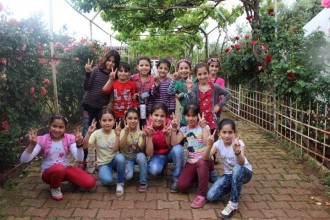As we approach an unusually dreaded midterm season, it has become increasingly apparent that, through its failure to regulate in-class methods and refusal to address concerns with the online curriculum, McGill is interfering with students’ well-being and providing us with a less-than-good education. In fact, the university’s inadequate handling of the situation has resulted in unhealthy and imbalanced schedules for students, a decrease in wellness, and a reinforcement of unsustainable working habits.
Most of us students have learned to define the value of our achievements based on how “productive” we are in advancing our academic or professional lives, how far we are willing to go to get ahead, and how quickly we get there. All-nighters and other unhealthy habits are normalized and sometimes necessary to keep up with the times. And although many of us know deep down that doing our best is good enough, there seems to be this unresolvable tension between our beliefs and this ‘grind’ culture. Learning and personal life shouldn’t conflict, and neither should productivity and well-being; on the contrary, they should complement each other. But the reality of this semester is that in order to maximize our success, we need to make unhealthy sacrifices.
…many students feel ‘Seriously disappointed with how McGill has responded to students’ feedback [and] not impressed with their lack of concern for mental well-being.’
Some might say that McGill has proven it cares about our well-being by providing us with several resources, such as emotional-support groups and meditation sessions. However, despite these tools and the several emails “checking-up” on students, McGill’s lack of attention towards the learning and teaching spheres has shown that our well-being and education are not as important as making the public (and themselves) believe a good job is being done.
Most undergraduates I have talked to agree that at least one of their professors has failed to accommodate courses to the current situation, resulting in way (WAY) too much work for students and a lack of balance between work and play. “I’ve managed to achieve a balance between school, my job, and extracurriculars. But unlike past semesters, I have practically zero time for anything social, and can’t differentiate between school days and weekends anymore,” said Alexandra Mircescu, a U2 student in Microbiology & Immunology, and President of the Microbiology and Immunology Student Association (MISA). This perfectly captures the bigger issue we are facing during this online semester: we lack the necessary time for friends, self-care, and other things that help us feel relaxed and fulfilled, and that ultimately improve the way we learn.
In light of this, many students feel “Seriously disappointed with how McGill has responded to student’s feedback [and] not impressed with their lack of concern for mental well-being,” says one Reddit user and McGill student. Unfortunately, a day after expressing their discouragement, this student decided to take a gap year, due to the lack of resources to deal with this situation. It’s disconcerting to see that many students feel McGill’s actions have been so inadequate, that they would rather not be in school at all than receive this kind of education.
The problem arises when variation in teaching and course delivery causes inconsistencies in workload and scheduling.
Granted, teaching remotely is also a very difficult task for educators. As Professor Graham Bell from the department of Biology claims, McGill has always allowed “considerable latitude in how [professors] deliver their courses,” as it is essential to academic freedom. But he adds that this also “inevitably results in wide variation in how courses are delivered.” Many students, including myself, love variation across courses: it makes learning more exciting and allows us to consider different perspectives. The problem arises when variation in teaching and course delivery causes inconsistencies in workload and scheduling.
According to McGill’s course regulations, a 3-credit course should involve three hours of weekly lectures, and an additional six to nine hours of course-related work, for an average of around nine to twelve hours of weekly work per course. Students are noticing that this number is much higher for some courses, either because of asynchronous lectures that go over the weekly three-hour limit, or because of extra quizzes, assignments, or reading responses that have been added to the weekly schedule to replace what used to be a midterm or two. Although McGill cannot feasibly control all teaching, such regulations on workload should be more strongly enforced. Given the often less-than-ideal circumstances around remote-learning, when one, or two, or five professors ignore these regulations, it takes a toll on students’ well-being.
Frustratingly, these issues have not been addressed. Instead, we are told we have plenty of resources at our disposal to help during these “uncertain times.” But seeing as we don’t have time for the most basic level of balance between school and personal time, how can we be expected to even make use of these (often time-consuming or inaccessible) tools?
In the past few weeks, this sentiment has definitely become a general outburst. Knowing I’m not alone in noticing and wanting to fight this injustice gives me mixed feelings: Many students, professors, and advisors across McGill also feel that this isn’t fair, so why aren’t things changing? Should I find comfort in the fact that we’re all in this together, or feel alarmed that this much backlash has not elicited a response by the University?
…’anything that increases the distance between professors and students reduces the quality of education.’
Despite the widespread dissatisfaction with how online school has been operating, McGill’s administration continues to pride itself on how great of an education it offers. Just a couple of weeks ago, McGill’s Provost sent an email highlighting the university’s “high-quality academic programs” and commitment to “delivering academic programs and courses of outstanding calibre,” with little regard to students’ complaints.
Calling these claims an overstatement would be an understatement in itself. Such a tone-deaf statement undermines the issues many people in the McGill community are facing. It’s insulting to see that not only are our concerns not addressed, but the emails we do receive make completely unsubstantiated claims. As Dr. Graham Bell expressed, “anything that increases the distance between professors and students reduces the quality of education.” The sooner McGill accepts this fact, the sooner they will be open to hearing us out and making changes.
I am not here to say that no positive actions have been taken by the University, or that professors and other staff have done an inadequate job overall. On the contrary, many professors and advisors have been incredibly flexible, understanding, and accessible, and we are grateful to them. At the same time, however, most students’ well-being has been negatively affected, and this doesn’t seem to be a big enough concern to McGill
This is undoubtedly one of the most difficult times we will face as learners and educators, and it’s unrealistic to expect the same outcomes and successes as previous semesters. What should be a given, though, is that our university will go above and beyond to ensure our well-being and satisfaction with our education, the one we are investing in, and therefore have a right to criticize in times like these. For now, let’s remember that a school is not a school without its students, something McGill knows very well. We are important, our voices matter, and no matter how much we feel ignored right now, we will be heard sooner or later.








